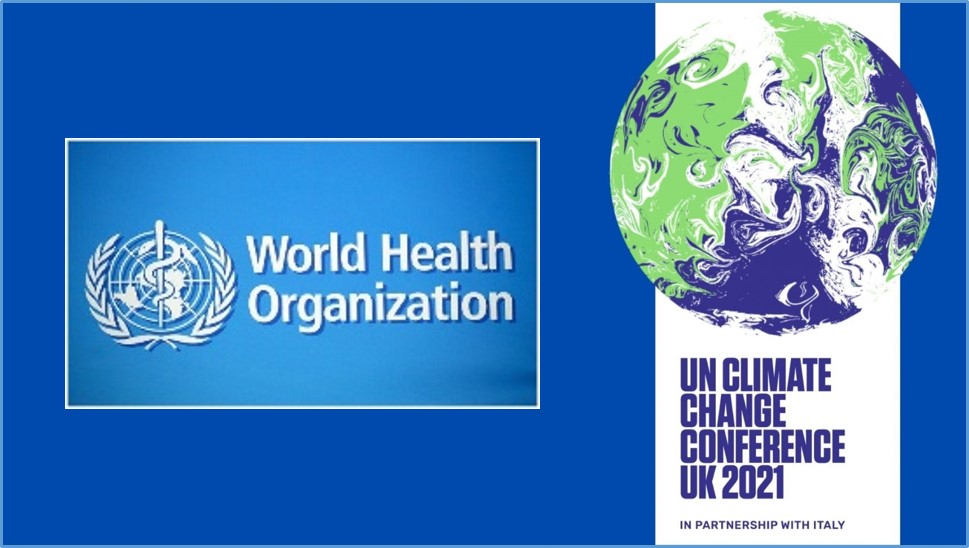The annual UN Climate Change Conference (COP) is a regular feature since 1995. The two-week summit is an important event for stakeholders to discuss the climate crisis on a global level, in line to the United Nations Framework Convention on Climate Change (UNFCCC). For this year summit – named the COP26 –, the World Health Organization (WHO) spells out the global health community’s prescription for climate action with 10 important recommendations or commandments to tackle the climate crisis, restore biodiversity and protect health.
The COP26
The COP26 is scheduled from the 1st to the 12th of November 2021 in Glasgow, Scotland. In the first week of the summit various government representatives are expected to discuss technical issues including carbon credits, funding for countries vulnerable to climate change and nature-based solutions. While in the second week, heads of state are expected to meet to negotiate and make agreements.
The WHO Recommendations
In the lead-up to the COP26, the WHO launched this week Special Report on Climate Change and Health, which remarks “Climate change is the single biggest health threat facing humanity.” It also calls countries to set ambitious national climate commitments as a must if they are to sustain a healthy and green recovery from the COVID-19 pandemic. Most importantly the WHO has given 10 recommendations for COP26 participants and asked governments to prioritize health and equity in the international climate regime and sustainable development agenda.
These recommendations are;
1. Commit to a healthy recovery. Commit to a healthy, green & just recovery from COVID-19.
2. Our health is not negotiable. Place health & social justice at the heart of the UN climate talks.
3. Harness the health benefits of climate action. Prioritize those climate interventions with the largest health-, social- and economic gains.
4. Build health resilience to climate risks. Build climate resilient and environmentally sustainable health systems and facilities, and support health adaptation and resilience across sectors.
5. Create energy systems that protect and improve climate and health. Guide a just and inclusive transition to renewable energy to save lives from air pollution, particularly from coal combustion. End energy poverty in households and health care facilities.
6. Reimagine urban environments, transport and mobility. Promote sustainable, healthy urban design and transport systems, with improved land-use, access to green and blue public space, and priority for walking, cycling and public transport.
7. Protect and restore nature as the foundation of our health. Protect and restore natural systems, the foundations for healthy lives, sustainable food systems and livelihoods.
8. Promote healthy, sustainable and resilient food systems. Promote sustainable and resilient food production and more affordable, nutritious diets that deliver on both climate and health outcomes.
9. Finance a healthier, fairer and greener future to save lives. Transition towards a wellbeing economy.
10. Listen to the health community and prescribe urgent climate action. Mobilize and support the health community on climate action.
Open Letter to COP26
Mobilizing the Health Community, an open letter has been sent by 300 organizations representing at least 45 million health professionals which calls for real action to address the climate crises. The letter states the following demands:
• All nations to update their national climate commitments under the Paris Agreement to commit to their fair share of limiting warming to 1.5°C.
• All nations to deliver a rapid and just transition away from fossil fuels, and to completely shift current financing into development of clean energy.
• High income countries to make larger cuts to greenhouse gas emissions, in line with a 1.5°C temperature goal.
• High income countries to also provide the promised transfer of funds to low-income countries to help achieve the necessary mitigation and adaptation measures.
• Governments to build climate resilient, low-carbon, sustainable health systems.
• Governments to also ensure that pandemic recovery investments support climate action and reduce social and health inequities.
By
Editorial, Infocus


